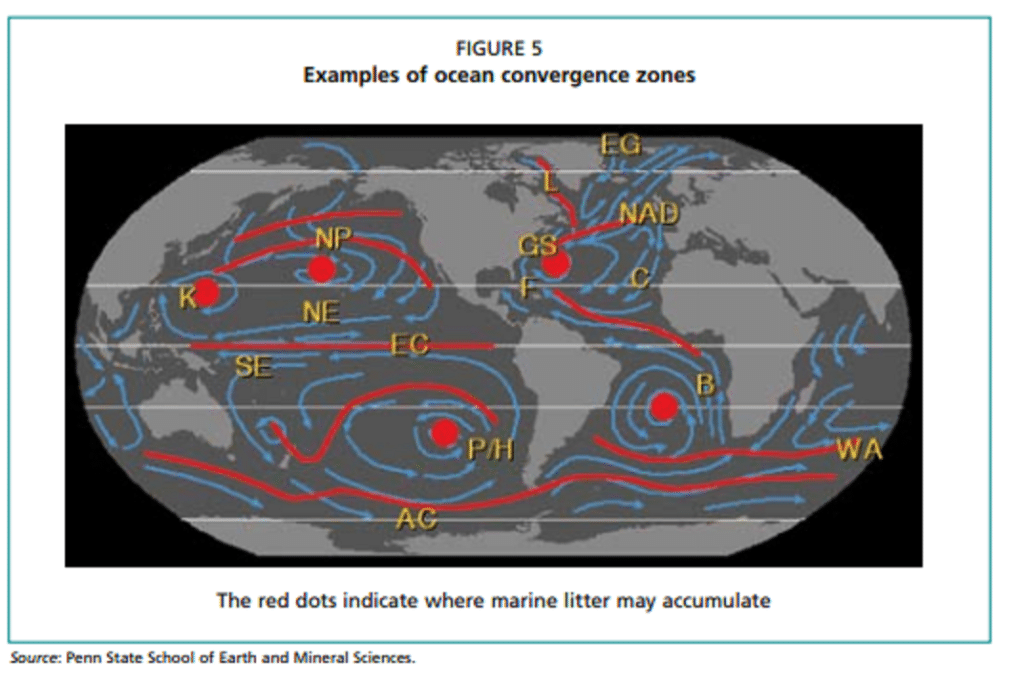Jul. 2023
Banishing Ghost Gear: A Global Effort for Ocean Conservation
Ghost fishing, a silent threat to marine ecosystems, knows no boundaries. Ocean currents can carry lost or abandoned fishing gear across vast distances, making it a global issue. For example, approximately 95% of nets that wash ashore in Australia are believed to originate from other countries, highlighting the transboundary nature of the problem. As these derelict gears drift, they converge with discarded plastics, forming floating trash islands like the notorious Great Pacific Garbage Patch. To combat this issue, innovative technologies like PingMe , along with practical measures and international cooperation, are essential for banishing ghost gear from our oceans.
Ocean Currents and the Global Reach of Ghost Gear

The relentless force of ocean currents propels lost or discarded fishing gear across vast expanses of water. As nets and other gear become entangled, they can travel significant distances before washing ashore or becoming trapped in convergence zones. This phenomenon explains why a considerable portion of ghost gear found in one country can originate from distant shores. For example, Australia, known for its pristine coastlines, grapples with an overwhelming majority of nets that come from elsewhere. The alarming fact underscores the urgent need for international collaboration in addressing ghost gear.
The Great Pacific Garbage Patch and the Plastic Connection
Ghost gear not only poses a threat on its own but also contributes to the broader problem of marine plastic pollution. Ocean currents gather discarded fishing gear and plastic debris into convergence zones, resulting in massive floating trash islands, such as the infamous Great Pacific Garbage Patch. The presence of ghost gear exacerbates the plastic pollution crisis, as these entangled nets and lines persist for years, continuing to capture marine life and break down into microplastics. By tackling ghost gear, we can simultaneously address the entwined issue of marine plastic pollution.
Practical Measures and International Cooperation
To effectively combat ghost gear, a multifaceted approach is required. The United Nations has outlined practical measures aimed at curbing this pervasive problem. Education plays a vital role, as raising awareness among the fishing industry about the impact of lost gear fosters responsible practices. Incentives can be provided to encourage fishermen to report lost equipment and actively retrieve nets encountered at sea. Establishing collection facilities at each port facilitates the safe disposal of old, damaged, or retrieved gear, ensuring its proper handling and promoting recycling initiatives.
International cooperation is key to addressing ghost gear comprehensively. Collaboration among countries, fishing communities, environmental organizations, and industry stakeholders can lead to the development and implementation of standardized protocols for reporting lost gear, tracking its origins, and facilitating cross-border retrieval efforts. By sharing knowledge, best practices, and resources, nations can work together toward a common goal of banishing ghost gear from our oceans.
Ghost gear, propelled by ocean currents and converging with plastic debris, poses a significant threat to marine ecosystems and biodiversity. Combating this issue requires a global effort, with innovative technologies like PingMe playing a vital role in the retrieval and prevention of lost fishing gear. However, long-term solutions lie in international cooperation, education, incentives, and infrastructure to dispose of and recycle gear responsibly. By banishing ghost gear, we take a crucial step towards preserving the health of our oceans and securing the livelihoods of fishermen who depend on sustainable fish stocks for their existence. Let us join forces and protect our oceans for future generations.